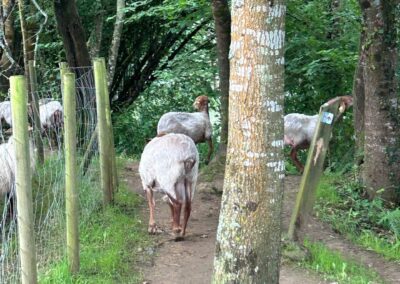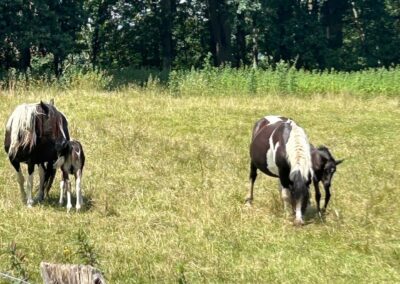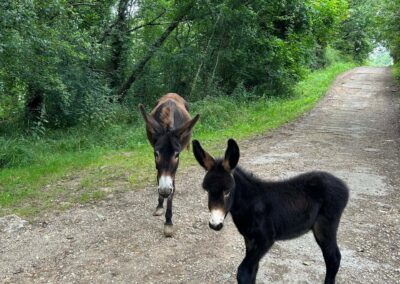As many will have heard, my decision to walk the Camino was rooted in a need to strengthen my ‘solitude muscles’ and to find balance with my normal extraverted tendencies. During my process to becoming a minister, the psychologist who did my assessment qualified me as a ‘galloping extrovert’ beyond anyone he had met in his 40 years of service. He warned me of the importance to develop some resilience in times of solitude. The Camino seemed like the right place to hone these skills when it came time for my sabbatical. I even chose the lesser traveled paths in an effort to keep me focused on this goal.
I walked alone about 75% of the time, even had some days where I didn’t encounter a single other pilgrim as I walked. I never felt alone. Prayer and reflection time was ample and it was savoured. So while I don’t think I changed my essential nature, I learned that I didn’t mind my own company, and ultimately the accompaniment of the Spirit which was ever-present.
My conscious disconnection from the world ‘back home’ consisted of no social media, a Spanish phone number and email address (for logistics), no games on my phone, no news alerts from back home, and a single FaceTime conversation every Sunday with my husband Scott. I wanted to be present to the NOW of the camino.
On one particularly short walking day, I intentionally stopped frequently to watch nature all around me. Clouds, cows, butterflies, even slugs and snails were the expanded delights of the day… taking time to watch their movements. I spent hours as a spectator of the splendor of God’s creation. Far from feeling alone, I felt connected and a part of the full production. It was that day, watching a flock of sheep for almost an hour, that I began to realize an important thing… that life, is by definition, social and interactive.
As the flock made its way through the field, when one sheep realized it was separated from the group, it would immediately become agitated and call out for its community. A few members of its community would call back so that the sheep would know how to reconnect and it would run towards them with enthusiasm and sounds that could only be described as an expression of relief. I saw this exact thing repeated two more times with different gathering of sheep days later.
Another day, I found myself walking through a herd of cattle. As I walked past a very young calf, it walked up to me with curiosity and as I got closer, it ran behind its mother, just as a shy six year old might do. It sought to find its family.
Yet another day, there was a donkey and its offspring on a forested path, far from any farm that I could see. As they saw me approach, I assumed they would run off, but instead, they decided to follow me for a while… they were obviously lost and figured that I would lead them home.
On a particularly dreary and rainy day, I hadn’t noticed how incredibly slowly I had been walking. Suddenly, a young woman from Australia appeared next to me and started to chat. She was walking at a far faster pace than I, but I could suddenly find the energy to keep up with her… even when our conversation faded.
Despite trying to learn about solitude, I learned the value of social connection – both in nature and in my interactions with other pilgrims. As living creatures, we seek relationship and we value relationship in ways that are entirely natural and at the base of the way God obviously intended.
I’m not anxious about being alone, and while those muscles were strengthened both spiritually, emotionally and physically, I recognize something about our essential nature that teaches me about humanity, something that is of great value as our churches struggle to be relevant in the world today. We are all seeking relationship and connection. Our communities of faith can be that place of connection, can create intimacy and belonging, particularly for those who feel intense disconnection and, like the sheep, cry out for their flock. Can our church communities respond with a reassuring “we’re over here… welcome home”?
Rev. Éric Hébert-Daly spent June and July 2024 walking the Camino del Norte, the Camino Lebaniego, the Camino Primitivo, the Camino Inglés and the Camino Muxia/Finistera as part of his sabbatical. He walked 1458kms carrying his backpack across mountains, fields and coasts while holding communities of faith and ministry personnel in prayer. Éric will share some insights of his journey over the coming months.



